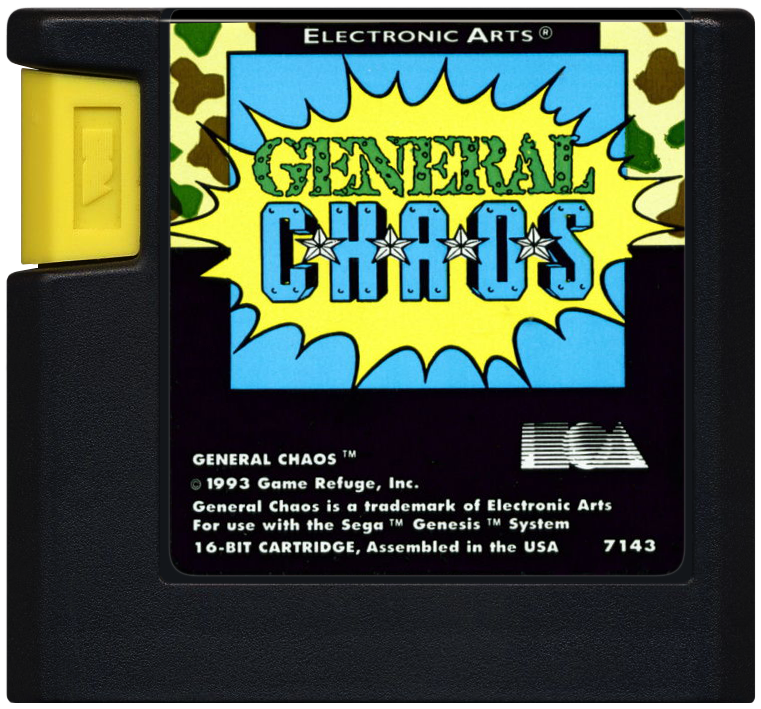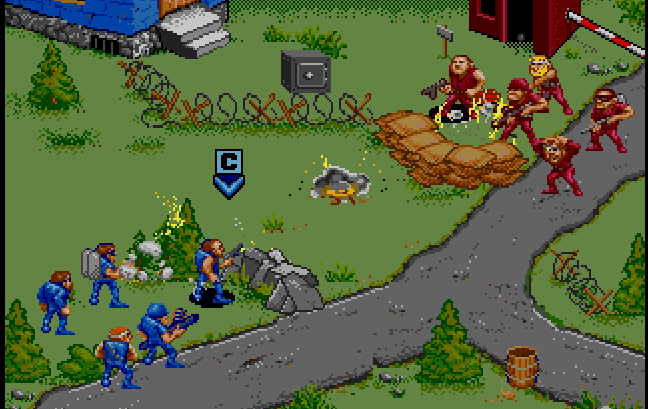

Before each battle, you select soldiers to make up the squad from various types including gunman, flame thrower, rocket launcher, dynamite blaster, and grenadier. The two opposing generals are named, appropriately enough, General Chaos and General Havoc.

The game is essentially a quick and dirty battle (or a longer campaign mode that's just a series of battles) between two opposing squads of 5 soldiers each.

Think of crossing the zany action gameplay and humor of Cannon Fodder with wacky strategic elements of Nuclear War, and you'll have a good idea of what General Chaos is like. 1993 Aug 14 307(6901):429–432.One of the most underrated games for the SEGA Genesis console, General Chaos is a fun and funny arcade/strategy game. Unravelling gossamer with boxing gloves: problems in explaining the decline in smoking.
Prochaska JO, DiClemente CC, Norcross JC. "Clinical Judgment" revisited: the distraction of quantitative models. Finding meaning after the fall: injury narratives from elderly hip fracture patients. 
The scientific basis of generalist medicine. Evidence-based medicine and general practice.
Jacobson LD, Edwards AG, Granier SK, Butler CC. Addressing the credibility gap in general practice research: better theory more feeling less strategy. This may not be the complete list of references from this article. The Full Text of this article is available as a PDF (27K). Finally, the paper suggests that to develop this type of research, general practice many need to reassess systems of categorizing and recording appropriate data. The paper emphasizes the importance of data collected over time and of considering the multiplicative interactions between variables. Methods of combining data about social context with data about individuals and about biomedical factors are discussed. A conceptual and practical link between qualitative and quantitative methods of research is suggested. From this, analogies are drawn between general practice and the theories, which suggest a different way of understanding general practice and point to future developments in general practice research. This paper outlines the general practice world view and introduces the main features of the theories of 'chaos' and complexity.








 0 kommentar(er)
0 kommentar(er)
